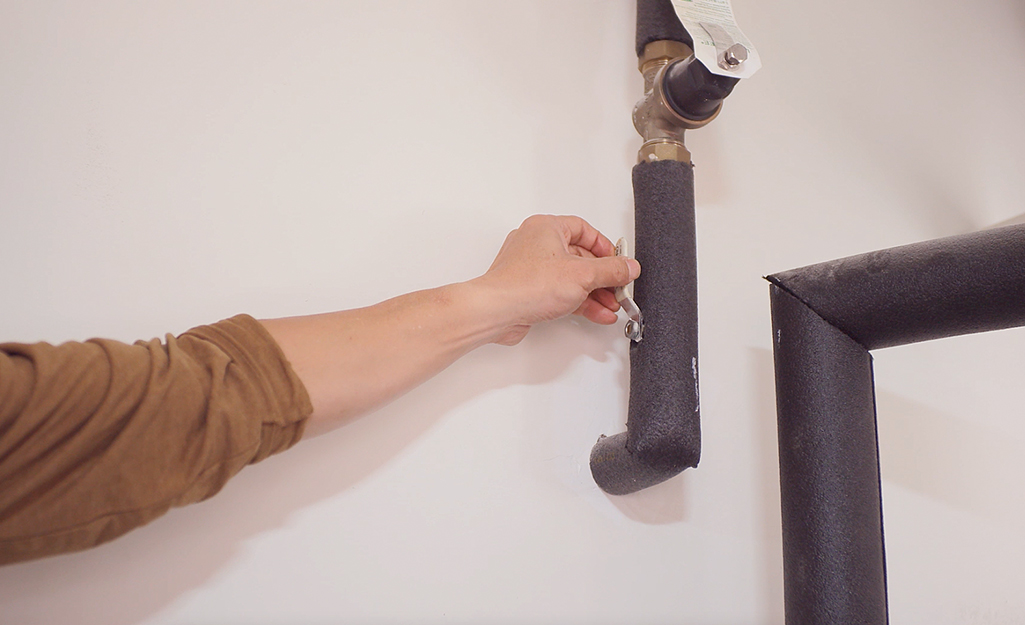Listed here underneath you will find a lot of good quality insights about Should I Repair or Replace a Leaky Faucet?.

Dripping faucets might appear like a small hassle, however their effect goes beyond simply the inconvenience of the sound. From drainage to incurring unneeded financial expenses and wellness dangers, ignoring a trickling tap can cause various effects. In this short article, we'll look into why it's vital to address this usual home concern quickly and properly.
Waste of Water
Ecological Effect
Leaking taps contribute considerably to water wastefulness. According to the Epa (EPA), a solitary faucet dripping at one drip per secondly can throw away more than 3,000 gallons of water per year. This not just strains water resources yet also affects ecological communities and wildlife dependent on them.
Financial Expenses
Raised Water Bills
Past the environmental effect, trickling taps can inflate water expenses considerably. The accumulated waste gradually converts right into greater energy expenditures, which can have been avoided with timely repair services.
Possible Residential Or Commercial Property Damage
Additionally, long term trickling can bring about damage to components and surface areas bordering the tap. Water buildup can cause staining, corrosion, and even structural issues if left ignored, leading to extra fixing costs.
Health Concerns
Mold and Mildew Growth
The consistent visibility of dampness from a trickling tap produces a suitable environment for mold and mold development. These fungis not only jeopardize indoor air quality but also posture wellness dangers, particularly for people with respiratory system problems or allergies.
Waterborne Illness
Stagnant water in trickling taps can end up being a breeding ground for microorganisms and various other microorganisms, increasing the risk of waterborne diseases. Contaminants such as Legionella microorganisms flourish in stagnant water, possibly causing major illnesses when consumed or inhaled.
DIY vs. Specialist Repair service
Advantages and disadvantages of Do It Yourself Fixing
While some may try to take care of a dripping faucet themselves, do it yourself repair services come with their very own collection of obstacles. Without correct knowledge and devices, DIY efforts can aggravate the problem or bring about insufficient repair services, extending the trouble.
Benefits of Hiring a Specialist Plumber
Employing a professional plumber makes sure that the underlying cause of the trickling faucet is dealt with effectively. Plumbers have the competence and devices to detect and repair tap concerns effectively, conserving time and minimizing the threat of further damages.
Step-by-Step Overview to Fixing a Dripping Tap
Devices Required
Prior to attempting to take care of a dripping faucet, gather the essential tools, including a flexible wrench, screwdrivers, substitute components (such as washers or cartridges), and plumber's tape.
Typical Tap Issues and Their Solutions
Recognize the type of faucet and the particular problem creating the drip. Common issues consist of damaged washing machines, rusty valve seats, or defective O-rings. Refer to manufacturer directions or on the internet tutorials for detailed advice on repairs.
Preventive Measures
Routine Maintenance Tips
To avoid leaking taps, execute regular maintenance such as cleaning up aerators, checking for leakages, and changing damaged components without delay. In addition, take into consideration installing water-saving gadgets or updating to more reliable components.
Relevance of Prompt Services
Addressing dripping faucets as soon as they're discovered avoids further water wastage and potential damage, inevitably saving both water and money in the long run.
Impact on Home Value
Understanding of Well-Maintained Home
Maintaining a home in good condition, including addressing upkeep concerns like leaking taps, boosts its viewed value and desirability amongst prospective purchasers or tenants.
Impact on Resale Worth
Qualities with well-kept plumbing fixtures, consisting of faucets, command greater resale values in the real estate market. Resolving leaking faucets can add to a positive impact throughout home inspections and arrangements.
Environmental Obligation
Individual Payment to Conservation
Taking duty for taking care of dripping taps aligns with more comprehensive efforts towards water conservation and ecological sustainability. Every individual's actions jointly make a significant influence on preserving priceless resources.
Sustainable Living Practices
By focusing on timely fixings and embracing water-saving behaviors, individuals add to sustainable living practices that profit both existing and future generations.
Conclusion
Resolving a dripping tap surpasses mere comfort; it's a vital action toward saving water, lowering economic prices, and protecting wellness and residential or commercial property. Whether via do it yourself repair work or expert aid, taking action to take care of trickling faucets is a small yet impactful method to advertise accountable stewardship of sources and add to a healthier, a lot more lasting future.
How to Fix a Leaky Faucet: Step-by-Step Repair Guide
A leaky faucet may seem like a simple annoyance, but if it's not fixed promptly, that leak could cost hundreds to potentially thousands. From water damage to mold, mildew, and high water bills, even a tiny leak can be catastrophic if left unattended. Damage like this can even affect the overall value of your home, so it's important to take the right approach for leaky faucet repair. You may need the help of a plumber in some cases, but we've got a few tips you can try on how to fix a leaky faucet before calling the pros.
Four Faucet Types
When you're learning how to fix a leaky faucet, the first step is knowing what kind of faucet you're working with! There are four common types.
Cartridge Faucets
Cartridge faucets come in one- or two-handled varieties. In one-handled cartridge faucets, hot and cold water combines in a single cartridge. In the two-handled versions, hot and cold water are controlled separately and mixed in the faucet.
Ball Faucets
Ball faucets have a single lever you push up and down to adjust the pressure and rotate to change the temperature. A slotted metal ball controls the amount of water allowed into the spout.
Compression Washer Faucets
They're the oldest type of faucet, but they're still used in many homes — especially older ones. Compression faucets have two separate handles that, when turned, raise or lower the washer that seals a water valve. This valve stops water from flowing through the faucet when it is turned off.
Disc Faucets
Disc faucets rarely need to be repaired due to their maintenance-free design. The water flow is controlled by two discs — the upper one raises and lowers against a fixed lower disc, creating a watertight seal. If your disc faucet starts leaking, you may need to replace the seals or clean residue buildup from the inlets.
Fixing a Leaky Faucet
Step 1: Turn Off the Water
Whether you're learning how to fix a leaky bathtub faucet or how to fix a leaky kitchen faucet, always turn off the water supply to your working area when you're fixing a leak. The last thing you want is a flood added to your list of things to fix.
Look for the shutoff valves below your sink or around the tub and turn them clockwise to stop the water flow. If your faucet doesn't have shutoff valves, you may need to turn off the water for the whole house. Check to make sure it's off by turning the faucet on. If nothing comes out, you're ready to start the repair.
Step 2: Take Apart the Faucet
How you disassemble your faucet depends on the type of fixture you have. You can use a flathead screwdriver to remove the caps on top of the handle or handles for cartridge and compression faucets. Inside, you should see handle screws. Unscrew these with a screwdriver to remove the handle.
Disc- and ball-style faucets will typically have an inlet screw near the handle, and removing that will reveal the interior of the faucet.
Detach the Valve Stem
For cartridge- and compression-style faucets, you'll see the inner valve stem or cartridge once you remove the faucet handles. If you have a compression faucet, unscrew the brass valve stem. If you have a cartridge faucet, pull out the cartridge. If your cartridge has been in place for a while, it may require some tools or extra force to remove it due to mineral deposits.
Examine and Replace Parts
Once you've removed the parts, check them out to confirm what needs to be replaced. You may see corroded rubber washers, O-rings, stems, or cartridges. On a ball-style faucet, check the seats and springs for damage.
If you need to repair a leaky disc faucet, check the inlet and seals on the lower disc.
Once you determine what parts must be replaced, visit your local hardware store. Bring the damaged parts with you to ensure you can purchase the correct components to replace them.
Clean Valves and Faucet Cavity
If you've removed a stem or cartridge, you may notice mineral buildup in the faucet's threads. Use white vinegar to clean the valve seat by soaking it for a few minutes, then scrub it away with a soft toothbrush and rinse with warm water. You can also clean the interior of the faucet in the same way.
Reassemble the Faucet
Once your faucet is cleaned and the required parts have been replaced, it's time to reassemble it. Put the pieces back together and slowly turn the water supply back on. Doing this slowly is crucial because too much initial water pressure can damage the new hardware you've just installed.
https://homewarranty.firstam.com/blog/how-to-fix-leaky-faucet

Do you like more info about Water Dripping from Faucet: Why and How to Fix? Write a remark down below. We will be pleased to see your feelings about this review. We hope to see you back again in the near future. Those who liked our blog entry please consider to pass it around. Thanks a lot for going through it.